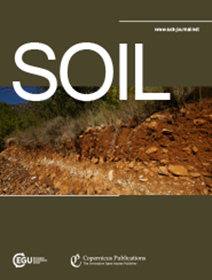基于土壤健康的商业模式:观点和政策影响
IF 4.3
2区 农林科学
Q1 SOIL SCIENCE
引用次数: 0
摘要
摘要。土壤健康是生态可持续性、经济生产力和社会福祉的基础。然而,关于什么是“健康土壤”的观点不一致,妨碍了连贯的政策和商业模式。本文通过提供一个基于价值的框架来指导土壤健康倡议,解决了这一差距。在总经济价值(TEV)框架的基础上,确定了六个互补的观点:(1)生产力主义,(2)生态系统服务,(3)复原力,(4)非使用价值,(5)内在价值,(6)社会创新。它们代表了不同的动机和受益者——从私人回报到公共产品,再到道德责任和集体赋权。每种观点都意味着政策设计的特定机遇和挑战。例如,在经济回报延迟或不足的情况下,直接补贴可能是合理的,而生态系统服务支付则需要可靠的衡量和市场机制。韧性投资往往会遭遇协调失败,内在价值或社会价值缺乏明确的经济激励,需要法律、教育或制度支持。本文认为,没有任何单一的政策工具可以有效地服务于所有这些观点;相反,需要一种差异化的、多角度的战略来协调激励措施,避免过度补贴,并确保公平获取和问责。该框架为制定包容性和适应性政策提供了基础,促进不同利益攸关方的可持续土壤管理。本文章由计算机程序翻译,如有差异,请以英文原文为准。
Soil health-based business models: perspectives and policy implications
Abstract. Soil health is foundational to ecological sustainability, economic productivity, and societal wellbeing. However, fragmented perspectives on what constitutes "healthy soil" hinder coherent policies and business models. This article addresses that gap by offering a value-based framework to guide soil-health initiatives. Building on the Total Economic Value (TEV) framework, six complementary perspectives are identified: (1) productivist, (2) ecosystem services, (3) resilience, (4) non-use value, (5) intrinsic value, and (6) social innovation. These represent different motivations and beneficiaries – from private returns through public goods, to moral duties and collective empowerment. Each perspective implies specific opportunities and challenges for policy design. For instance, direct subsidies may be justified in cases where economic returns are delayed or insufficient, while ecosystem service payments require credible measurement and market mechanisms. Resilience investments often suffer from coordination failures, and intrinsic or social values lack clear economic incentives, requiring legal, educational, or institutional support instead. The article argues that no single policy instrument can serve all these perspectives effectively; rather, a differentiated, multi-perspective strategy is needed to align incentives, avoid over-subsidization, and ensure equitable access and accountability. This framework provides a foundation for designing inclusive and adaptive policies that foster sustainable soil stewardship across diverse stakeholders.
求助全文
通过发布文献求助,成功后即可免费获取论文全文。
去求助
来源期刊

Soil
Agricultural and Biological Sciences-Soil Science
CiteScore
10.80
自引率
2.90%
发文量
44
审稿时长
30 weeks
期刊介绍:
SOIL is an international scientific journal dedicated to the publication and discussion of high-quality research in the field of soil system sciences.
SOIL is at the interface between the atmosphere, lithosphere, hydrosphere, and biosphere. SOIL publishes scientific research that contributes to understanding the soil system and its interaction with humans and the entire Earth system. The scope of the journal includes all topics that fall within the study of soil science as a discipline, with an emphasis on studies that integrate soil science with other sciences (hydrology, agronomy, socio-economics, health sciences, atmospheric sciences, etc.).
 求助内容:
求助内容: 应助结果提醒方式:
应助结果提醒方式:


